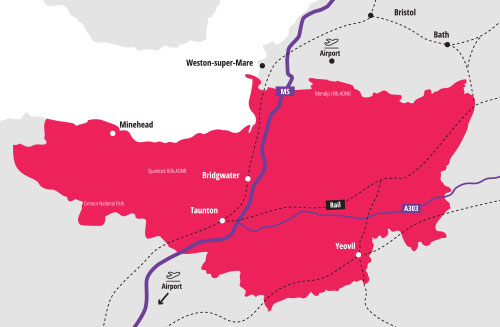Hinkley Point C has today announced 30,000 new training places between now and the power station’s completion, helping local people to join the project as its hits peak construction.
Trainees will be able to upgrade their skills and earning potential by joining the work to fit miles of pipes, cables, equipment, and control systems. The opportunities have been made possible by Hinkley Point C’s £24 million investment into education, skills, and employment, including at three new Centres for Excellence in welding, electrical and mechanical skills.
Courses will be available in in-demand skills such as electrical work, welding, steelwork, and pipe installation. The training centres will become part of Hinkley Point C’s legacy, available for local and national businesses to enrol their own employees, which will help to strengthen the region’s industrial capability.
Today’s figure was released in Hinkley Point C’s 2023 Socio-Economic Impact Report, which shows that:

- Spending in South-West has topped £5.3 billion with 1,300 companies
- Investment in local infrastructure and community support has reached £139 million
- Grants to fund local projects has hit £14.5 million
- 1,130 apprentices have been trained so far
Hinkley Point C’s contracts are also supporting and creating thousands of jobs across Britain. For example, more than £1.2 billion has been spent in the North-West of England with 130 companies. In North Wales, a new factory to make specialised pipework at Broughton has recently opened, creating 200 new skilled jobs.
As well as apprenticeships, the project has also expanded its T-level scheme for those at the very beginning of their careers and is offering a Supported Traineeship programme for those with learning difficulties.
Hinkley Point C’s Managing Director, Stuart Crooks said: “Nuclear power is not just essential for the country, it also delivers significant benefits for the communities and region that host it. We have worked hard with local colleges and businesses to make sure that Hinkley Point C increases prosperity and productivity in Somerset and the South West – giving as many people as possible the chance to increase their skills and earning potential.”
Energy Security Secretary, Grant Shapps, said: “Cheap, abundant and reliable energy is essential for a thriving economy. The work at Hinkley Point C reminds us that nuclear not only boosts our energy security and independence, but also helps deliver greater economic growth here in Somerset, and to the UK as a whole. Hinkley is at the heart of our focus on supporting greater nuclear, alongside the funding we’ve committed to Sizewell C – the first public funding for a nuclear project in nearly four decades – and our plans for Great British Nuclear to push forward the latest technologies – all of which will enable us to power more of Britain from Britain and deliver jobs for generations to come.”

Emma Rawlings, Chief Executive of Somerset Chamber of Commerce, said: “Hinkley Point C is continuing to drive the agenda for investment in both Somerset and the wider South West region. Somerset Chamber of commerce is proud to be playing its part, working in partnership with Hinkley Point C to give local people and regional businesses the best opportunity to win contracts and benefit from the legacy of the project. Once Hinkley Point C is completed, businesses in the South West will be more than ready to meet the demands of the future net zero economy.
Andy Berry, Principal and Chief Executive of Bridgwater & Taunton College, said: “Bridgwater & Taunton College is proud of the ongoing partnership with Hinkley Point C, and we continue to collaborate with them to help provide the skills required for the project and the local area. Working together, we have played a key role in establishing three centres of excellence in Welding, Electrical, and Mechanical, which are critical assets for ensuring the future of new nuclear in the UK.”
Paula Hewitt, Deputy Chief Executive at Somerset Council, said: “Hinkley Point C is supporting our vision for Somerset to be the centre of the globally significant clean growth region in the South West of England. Clean growth means recognising our climate emergency and addressing this through clean energy generation, clean transport, decarbonisation of industry, and attracting business opportunities which help to reduce carbon emissions, which benefit from our established expertise, innovation, and infrastructure.”



